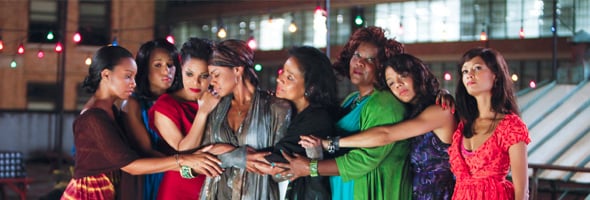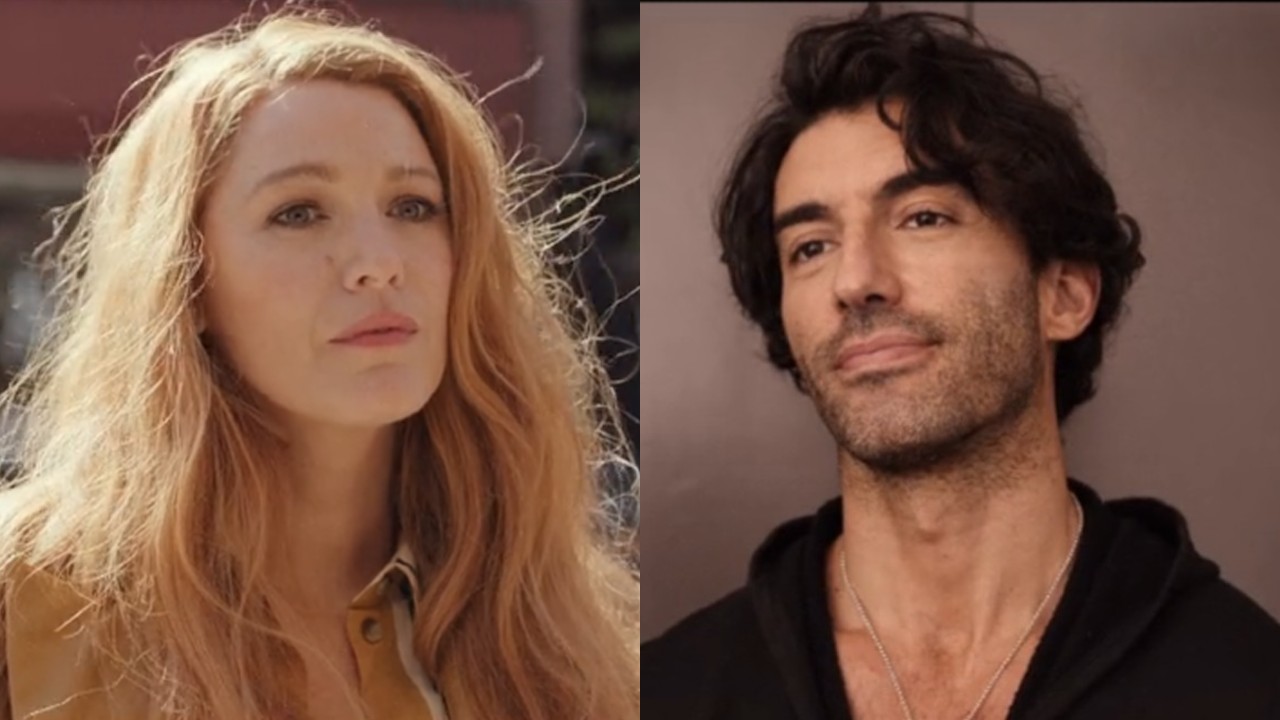It's not entirely accurate to call Tyler Perry a feminist based on his previous work-- most of his heroines are saved by the love of a good man in the end, and there's that tricky question of his own drag character Madea-- but he is more interested in the stories of African-American women than any other modern filmmaker, and in that way he is the appropriate director to adapt For Colored Girls Who Have Considered Suicide When the Rainbow Is Enuf, Ntozake Shange's landmark 1975 play. The film is is exactly the odd mix of Perry bombast and poetic beauty you would expect, but by casting a raft of magnetic actresses and focusing his work around their talents, Perry gives his film a power beyond the melodramatic twists and flat-footed dialogue that link Shonge's words in a tangled but captivating narrative.
The story built around the original play's series of poems features some wild coincidences and seemingly every tragedy in the playbook, but it is grounded in nine fully realized central characters, each honest and deeply human. The story largely takes place in a single grim Harlem walk-up, where Crystal (Kimberly Elise) and her children suffer at the hands of their abusive father (Michael Ealy), Juanita (Loretta Devine) struggles with a live-in boyfriend who doesn't appreciate her, Tangie (Thandie Newton) drowns her insecurities in flings with an endless string of men and Gilda (Phylicia Rashad) watches all with a disapproving glare as the building manager. Kelly (Kerry Washington) visits Crystal in her role as a social worker, while somewhere nearby lives Tangie's religious fanatic mother (Whoopi Goldberg) and her younger, ambitious sister Nyla (Tessa Thompson), who takes dance lessons from sweet and optimistic Yasmine (Anika Noni Rose). On the outside of nearly all these stories is Jo (Janet Jackson), Crystal's boss and a high-end magazine editor cribbed almost directly from The Devil Wears Prada's Miranda Priestly, right down to the husband who won't do right by her.
After about forty-five minutes of exposition the tragedies start coming one after another, spanning murder and rape and suicide to the seemingly average problem of STDs. Perry is asking us to wallow in pain, sure, but these disasters set up the delivery of Shonge's monologues, some spoken directly to the camera, about some element of their pain, their strength, their recovery, or their relationships to men or each other. Some are abstractly poetic and others bracing and direct, all of them written in a way dramatically opposed to Perry's straightforward dialogue. The contrast is jarring at first, but it's somehow elegant to watch Rashad segue from everyday scolding to a gorgeous poem about artificial beauty, or Rose stop in the middle of an interview with a policeman to deliver a monologue, in a clear but wavering voice, about the myths and many tiny devastations of rape. Perry, never too dextrous with the camera, is smart enough to hold still for most of these monologues, many shot in one take and all of them impeccably acted.
By combining Shonge's totemic play with his own work-- you might even be able to call Tyler Perry his own genre at this point-- Perry collides past and present African-American female identity in a way that is not always graceful, but is undeniably fascinating. Unlike many of his other films that focus on romantic love as a savior, Perry leads all of his characters quite literally into the arms of each other, finding strength in one anothers' stories of survival. And though a disappointing number of the characters are defined largely by their relationships to men, the sisterly bond between Tangie and Nyla is a powerful thread, as is Gilda's instinctive, motherly care for the other residents of her building. Nearly all of these stories have their clunkier moments, but the commitment of the actresses-- and Perry's own commitment to them-- is what sells them, along with the enduring elegance of Shonge's words.
At its best moments For Colored Girls is subtle and incisive, though of course subtle is a relative term in Perry's world, and many smart moviegoers will be rightly appalled by the infanticide, the religious extremism (Goldberg's fanatic character never quite gels), even the depiction of nearly every man as a monster or monster-in-waiting. But even if it's just because he had the sense to cast the actresses he did-- Rose, Rashad and Elise are particularly stunning-- Perry has made something larger than the sum of its flaws, proving more than ever before that he is a filmmaker with a distinct voice, strange and self-satisfied though it may be. For Colored Girls is a shaggy movie, and a simple production of Shonge's play would undoubtedly express more clearly most of the ideas here. But it is a massive step forward for Perry, an indication that though he'll never stray from his melodrama roots, he may start telling those stories with more grace.
Staff Writer at CinemaBlend












